Filter by
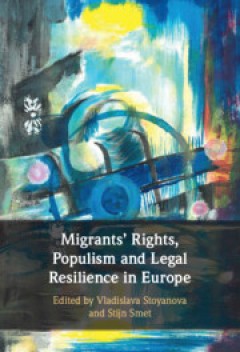
Migrants' Rights, Populism and Legal Resilience in Europe
Bringing together scholars of migration and constitutional law, this volume analyses the problematic relationship between the rise of populism, restrictions of migrants' rights and democratic decay in Europe. By offering both constructive and critical accounts, it creates a nuanced debate on the possibilities for and limitations of legal resilience against populist erosion of migrants' rights. …
- Edition
- -
- ISBN/ISSN
- 9781009040396
- Collation
- xiii, 410 p
- Series Title
- -
- Call Number
- 342.4082 MIG V
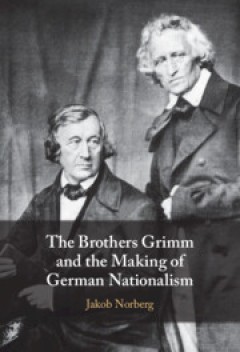
The Brothers Grimm and the Making of German Nationalism
In the first comprehensive English-language portrait of Jacob and Wilhelm Grimm as political thinkers and actors, Jakob Norberg reveals how history's two most famous folklorists envisioned the role of literary and linguistic scholars in defining national identity. Convinced of the political relevance of their folk tale collections and grammatical studies, the Brothers Grimm argued that they cou…
- Edition
- -
- ISBN/ISSN
- 9781009063890
- Collation
- viii, 268 p
- Series Title
- -
- Call Number
- 943.070922 BRO J

Polio Across the Iron Curtain : Hungary's Cold War with an Epidemic
By the end of the 1950s, Hungary became an unlikely leader in what we now call global health. Only three years after Soviet tanks crushed the revolution of 1956, Hungary became one of the first countries to introduce the Sabin vaccine into its national vaccination programme. This immunization campaign was built on years of scientific collaboration between East and West, in which scientists, spe…
- Edition
- -
- ISBN/ISSN
- 9781108355421
- Collation
- ix, 268 p ; ill
- Series Title
- -
- Call Number
- 616.835009439 POL D
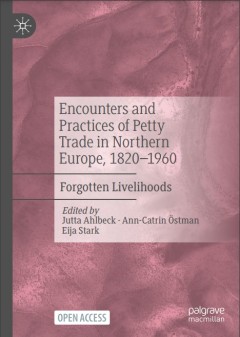
Encounters and Practices of Petty Trade in Northern Europe, 1820–1960
This open access book uncovers one important, yet forgotten, form of itinerant livelihoods, namely petty trade, more specifically how it was practiced in Northern Europe during the period 1820–1960. It investigates how traders and customers interacted in different spaces and approaches ambulatory trade as an arena of encounters by looking at everyday social practices. Petty traders often belo…
- Edition
- 1
- ISBN/ISSN
- 9783030980801
- Collation
- xiv; 353p; ill.
- Series Title
- -
- Call Number
- 381.094809034 ENC J
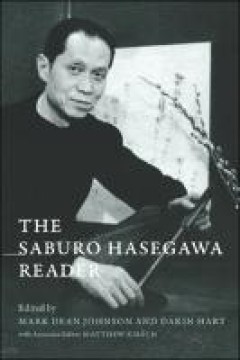
The saburo hasegawa reader
Published on the occasion of the 2019 exhibition “Changing and Unchanging Things: Noguchi and Hasegawa in Postwar Japan,” The Saburo Hasegawa Reader encompasses a selection of writings by the Japanese artist, theorist, essayist, teacher, and curator Saburo Hasegawa (1908–1957), translated into English for the first time. Credited with introducing abstract art to Japan in the 1930s, Hasega…
- Edition
- edision 12
- ISBN/ISSN
- 9780520970922
- Collation
- xxv. :ill. ;166 p.
- Series Title
- -
- Call Number
- 709.2. THE j
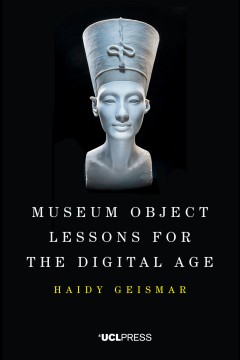
Museum object lessons for the digital age
Museum Object Lessons for the Digital Age explores the nature of digital objects in museums, asking us to question our assumptions about the material, social and political foundations of digital practices. Through four wide-ranging chapters, each focused on a single object – a box, pen, effigy and cloak – this short, accessible book explores the legacies of earlier museum practices of colle…
- Edition
- -
- ISBN/ISSN
- 9781787352810
- Collation
- xv, 139 p. ill;
- Series Title
- -
- Call Number
- 069.5 MUS H
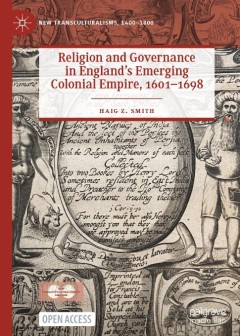
Religion and Governance in England’s Emerging Colonial Empire, 1601–1698
This open access book explores the role of religion in England's overseas companies and the formation of English governmental identity abroad in the seventeenth century. Drawing on research into the Virginia, East India, Massachusetts Bay, Plymouth, New England and Levant Companies, it offers a comparative global assessment of the inextricable links between the formation of English overseas gov…
- Edition
- -
- ISBN/ISSN
- 9783030701314
- Collation
- xi, 292 p.
- Series Title
- -
- Call Number
- 909.097124106 REL H
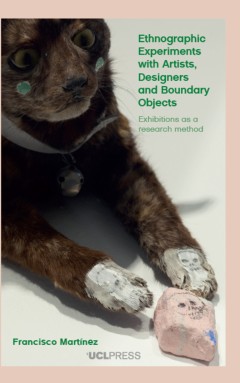
Ethnographic experiments with artists, designers and boundary objects : exhib…
Ethnographic Experiments with Artists, Designers and Boundary Objects is a lively investigation into anthropological practice. Richly illustrated, it invites the reader to reflect on the skills of collaboration and experimentation in fieldwork and in gallery curation, thereby expanding our modes of knowledge production. At the heart of this study are the possibilities for transdisciplinary coll…
- Edition
- -
- ISBN/ISSN
- 9781800081086
- Collation
- xiii, 201 p. ill;
- Series Title
- -
- Call Number
- 708 ETH F

Environmental groups and legal expertise : shaping the Brexit process
Environmental Groups and Legal Expertise explores the use and understanding of law and legal expertise by environmental groups. Rather than the usual focus on the court room, it scrutinises environmental NGO advocacy during the extraordinarily dramatic Brexit process, from the referendum on leaving the EU in June 2016 to the debate around the new Environment Bill in the first half of 2020. T…
- Edition
- -
- ISBN/ISSN
- 9781787358584
- Collation
- xxi, 191 p.
- Series Title
- -
- Call Number
- 344.4046 ENV C
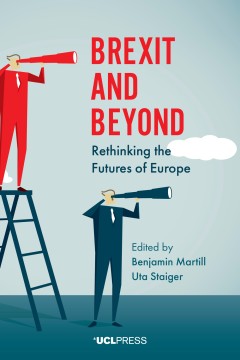
Brexit and beyond : rethinking the futures of Europe
Brexit will have significant consequences for the country, for Europe, and for global order. And yet much discussion of Brexit in the UK has focused on the causes of the vote and on its consequences for the future of British politics. This volume examines the consequences of Brexit for the future of Europe and the European Union, adopting an explicitly regional and future-oriented perspective m…
- Edition
- -
- ISBN/ISSN
- 9781787352759
- Collation
- xv, 291 p.
- Series Title
- -
- Call Number
- 341.24220941 BRE B
 Computer Science, Information & General Works
Computer Science, Information & General Works  Philosophy & Psychology
Philosophy & Psychology  Religion
Religion  Social Sciences
Social Sciences  Language
Language  Pure Science
Pure Science  Applied Sciences
Applied Sciences  Art & Recreation
Art & Recreation  Literature
Literature  History & Geography
History & Geography